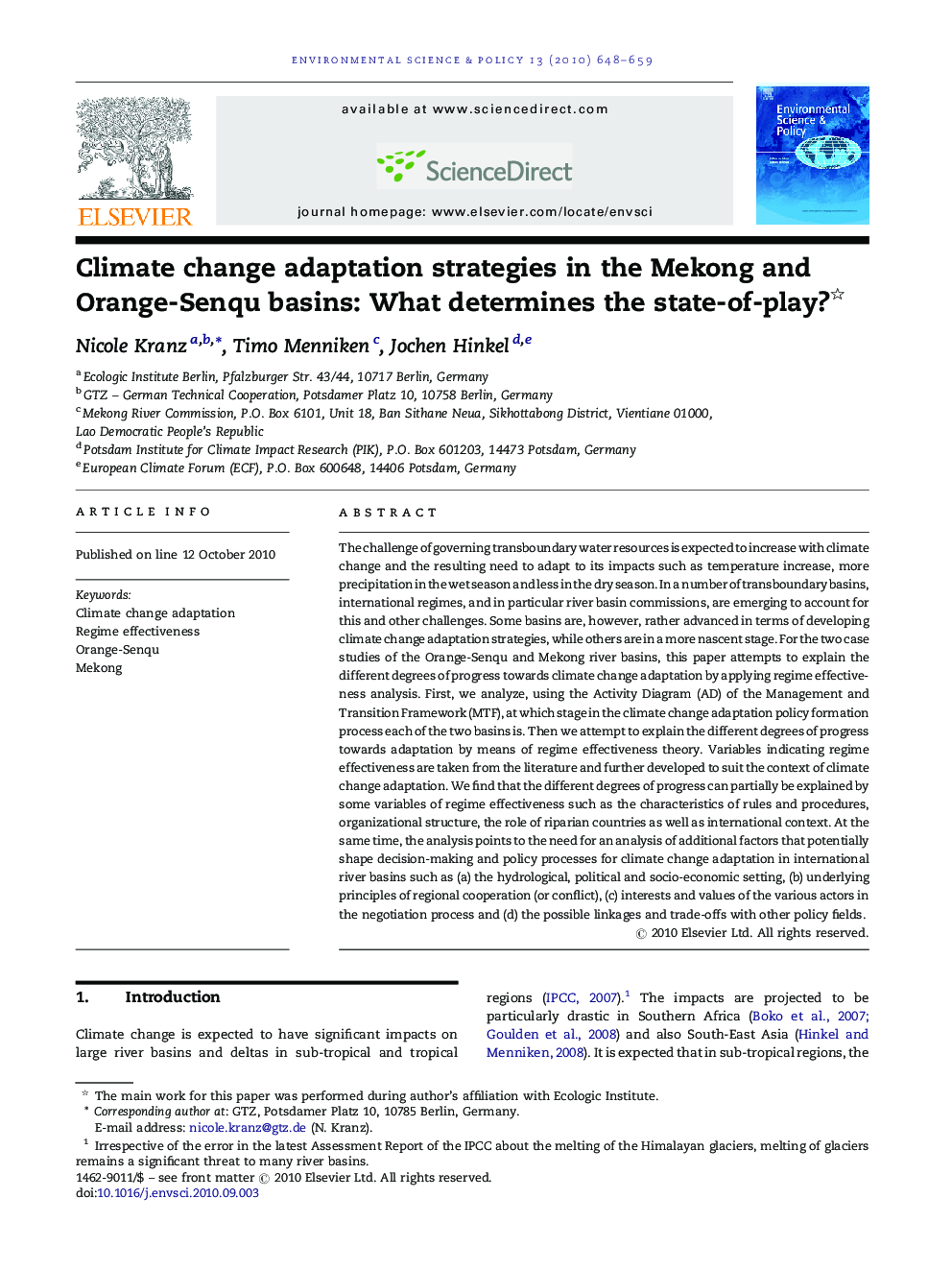| کد مقاله | کد نشریه | سال انتشار | مقاله انگلیسی | نسخه تمام متن |
|---|---|---|---|---|
| 1053921 | 946734 | 2010 | 12 صفحه PDF | دانلود رایگان |

The challenge of governing transboundary water resources is expected to increase with climate change and the resulting need to adapt to its impacts such as temperature increase, more precipitation in the wet season and less in the dry season. In a number of transboundary basins, international regimes, and in particular river basin commissions, are emerging to account for this and other challenges. Some basins are, however, rather advanced in terms of developing climate change adaptation strategies, while others are in a more nascent stage. For the two case studies of the Orange-Senqu and Mekong river basins, this paper attempts to explain the different degrees of progress towards climate change adaptation by applying regime effectiveness analysis. First, we analyze, using the Activity Diagram (AD) of the Management and Transition Framework (MTF), at which stage in the climate change adaptation policy formation process each of the two basins is. Then we attempt to explain the different degrees of progress towards adaptation by means of regime effectiveness theory. Variables indicating regime effectiveness are taken from the literature and further developed to suit the context of climate change adaptation. We find that the different degrees of progress can partially be explained by some variables of regime effectiveness such as the characteristics of rules and procedures, organizational structure, the role of riparian countries as well as international context. At the same time, the analysis points to the need for an analysis of additional factors that potentially shape decision-making and policy processes for climate change adaptation in international river basins such as (a) the hydrological, political and socio-economic setting, (b) underlying principles of regional cooperation (or conflict), (c) interests and values of the various actors in the negotiation process and (d) the possible linkages and trade-offs with other policy fields.
Figure optionsDownload as PowerPoint slideResearch highlights▶ Managing climate change adaptation in transboundary basins. ▶ Maps progress in adaptation planning by using MTF–Activity Diagram approach. ▶ Applies regime effectiveness theory to detect factors that might influence progress in adaptation planning and implementation. ▶ Application in two case studies: Orange-Senqu and Mekong. ▶ Regime development is an important factor in determining progress in adaptation.
Journal: Environmental Science & Policy - Volume 13, Issue 7, November 2010, Pages 648–659